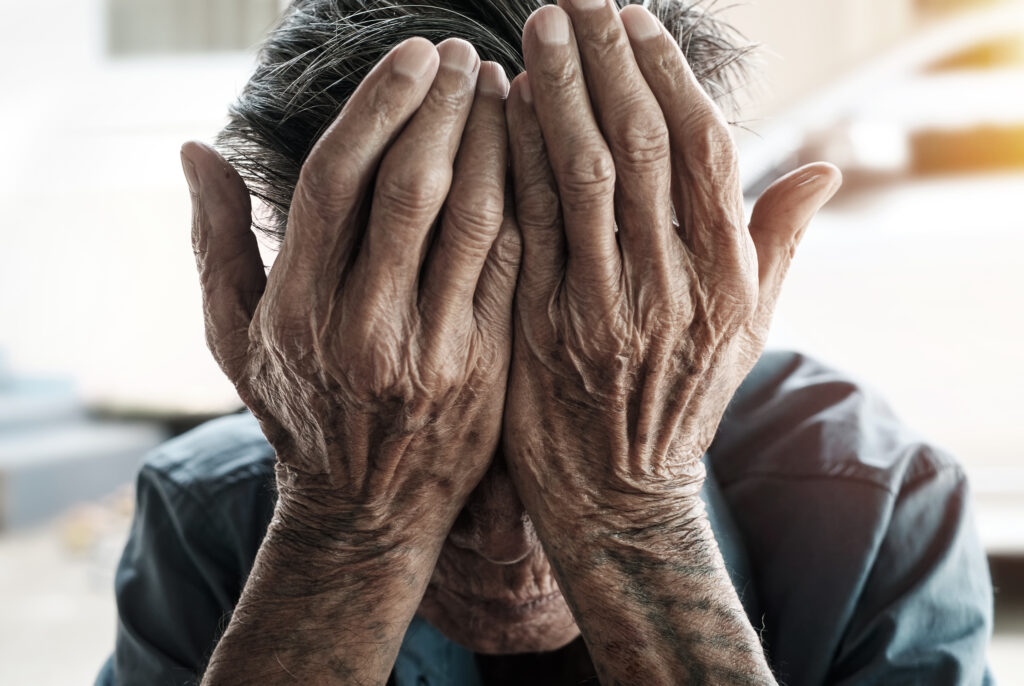
How Medicaid Cuts Could Force Millions Into Nursing Homes
If Federal Support Falls, States May Slash Home- and Community-Based Services — Pushing Vulnerable Americans Into Nursing Homes They Don’t Want or Need
Improving Care for Older Adults
Blog Post
Produced in conjunction with the Population Aging Research Center at the University of Pennsylvania.
The COVID-19 pandemic has focused worldwide attention on a concurrent public health crisis —social isolation. Older adults — particularly those with cognitive impairment—may be particularly vulnerable to ill effects from social isolation. In a new study, we found that older adults living with cognitive impairment, such as dementia and mild cognitive impairment, felt lonely and anxious when socially alienated.
Older persons with cognitive impairment may be at greater risk of experiencing the negative health effects of social isolation as they gradually lose their memory, their orientation to time and place, and their connection to other people. As it becomes more difficult for them to recognize people and go out, their social interactions with friends and family decrease. However, until now, social isolation and its psychological outcomes among older adults with cognitive impairment have received little attention. Because humans feel anxiety when socially isolated, we were curious whether this is the same case for older adults with cognitive impairment.

In our study, we analyzed 1,343 community-residing older adults with cognitive impairment using a national dataset to assess the relationship between social isolation and anxiety. We found that people with cognitive impairment also experienced social isolation and anxiety, just like the general population. In addition, anxiety was related to higher levels of loneliness, which contributed to feelings of greater social isolation, including feeling a lack of companionship and feeling left out.
Humans are social. People feel emotionally secure and stable by sharing information and feelings with others. According to the theory of socioemotional selectivity, as people get older, the demand for intimacy and emotional connection with others increases. Thus, older adults consider social engagement, sense of connection, and social relationships key components for successful aging.
Because of the global COVID-19 pandemic, all of us have experienced some level of social isolation over the past few years. We were not able to see family and friends and engage in the social activities that we used to enjoy. Community-dwelling older adults with cognitive impairment experienced feelings of loneliness and isolation even before COVID-19. It is likely that the pandemic exacerbated these feelings.
Going forward, paying more attention to the emotional needs of people with cognitive impairment could provide a better opportunity for successful aging in this previously overlooked population. Non-pharmacological intervention programs such as group activities or shared activities are known to be effective to improve loneliness and social isolation among older adults with intact cognition. Similar interventions should be tailored for older adults with cognitive impairment to lessen their loneliness and social isolation.

The study, The Relationship Between Social Isolation and Anxiety in People With Cognitive Impairment in the United States, was published in the February 2022 issue of The International Journal of Geriatric Psychiatry. Authors include Yeji Hwang and Nancy Hodgson.



If Federal Support Falls, States May Slash Home- and Community-Based Services — Pushing Vulnerable Americans Into Nursing Homes They Don’t Want or Need

Men are Stepping Up at Home, but Caregiving Still Falls On Women and People of Color LDI Fellow Says

Economist Norma Coe’s Caregiving For Relatives Informed Her Research

The Decline Since 2020 May Signal Gaps in Service and Access

Penn Event Explores the Limits of Chronological Aging and Related Issues

LDI Executive Director Discusses New Findings on Medicare Beneficiaries’ Use of Home Health

The Tragic Deaths of the Actor With Dementia and His Wife Signal a System That Often Fails to Support Caregivers

Briefing: Presented to Staff of U.S. Senate Committee on Finance